Official Translation Services: Your Checklist to Avoid Rejections in Legal and Immigration Offices

Summary:
Have you ever submitted your documents for immigration or legal purposes, only to face rejection due to poor translation? An accurate, certified translation is essential when dealing with official paperwork. This blog will walk you through the importance of official translation services, how to ensure legal compliance, and how to avoid common mistakes that could lead to rejections. With expert tips and a comprehensive checklist, you can confidently navigate the translation process for all your legal and immigration documents.
1. Why Official Translation Services Matter for Legal and Immigration Documents
When handling your immigration and legal documents, it is crucial to have accurate, official, and legally compliant translations. Translation services render your documents between the languages and legal systems of different parts of the world, so they can be understood by the necessary authorities. Without this service, you could face rejections, delays, or any other number of misunderstandings that could jeopardize your immigration or legal process.
What Makes a Translation Official?
Translations that are official do not simply interpret languages; they convey a heavy kind of legal freight. An official translation must be done by a person who has been certified as a translator—someone who has shown the ability to translate with complete accuracy not just the kind of stuff that tests your textbook translation skills, but the kind of stuff that has to hold up in court.
Certifying a translator is kind of like certifying a notary public; people who issue the certificates must have enough confidence in the would-be translator or notary that their handiwork won’t get anyone into legal hot water. If the translation from Spanish to English is done well, then the English is the equal of the original Spanish in every way that counts.
- Certified Translators: These specialists are trained to translate documents precisely and to certify the translations as authentic.
- Certified Translation: Several nations necessitate “certified” translations, where the translator guarantees or swears to the accuracy of the document. They do this with a signature on a document that accompanies the translation. This is especially common in legal and immigration matters.
- Adherence to Legal Requirements: Translations done for official purposes must satisfy stringent legal requirements. Certain entities—like immigration offices, courts, or notary services—require certified translations that meet specific standards. When a translation does not comply because it is inaccurate or simply not well organized, the entity receiving the translation can—and often does—reject it. And when that happens, so does your chance of getting through the required legal hoops.
The Role of Certified Translators
Expert translators provide sworn translations that guarantee the accuracy and legality of your documents. If you are submitting documents for official purposes—immigration, court, or business matters—that must be in a foreign language, using a translator who is certified ensures that the translation is legal and intelligible. It is understood, of course, that a certified translator must also be good. A word-for-word conversion is no good if it is not a good word-for-word conversion. Yet the translator must also not render things into the sort of English that makes the local legal system understand your context or intent any better than it did without the translation.
2. Key Benefits of Using Official Translation Services
Selecting the correct document translation service is crucial to ensure that your texts meet all requisite benchmarks and guidelines. Here are the key advantages of collaborating with certified translation services.
Legal Precision and Conformity
Document translators grasp the nitty-gritty specifications for the various categories of legal and immigration texts. They guarantee that their translations conform to all the regulatory strings that the relevant authorities have set in place. That matters a lot for pivotal texts like birth certificates, marriage certificates, police records, and legal contracts, where getting it right is not just a figure of speech.
Fast and Accurate Translations
When you need your documents translated into another language, a certified translator can help ensure that the translated documents are accepted by the immigration and legal authorities. When translations are fast and accurate, they are more likely to be accepted without delay. This is crucial when you are working with a timeline imposed by the authorities.
Steering Clear of Expensive Errors
When translations go awry, they can bring down some serious repercussions, like getting your application thrown back in your face or facing the need to turn around and make additional submissions. Those can be slap-on-the-wrist expenses, simple nuisance fees, or slaps to the ego amounting to just plain unnecessary costs. But some of us end up dealing with those penalties at some point. I know. I’ve been there.
Sworn Translation Services: A Legal Necessity
In various nations, state documents necessitate translation by certified professionals, particularly when the intended use is legal. But what does it mean to be a “certified” translator? And how does one become a sworn translator? In the U.S., as far as I know, there is no official path to becoming a translator of this kind. In fact, unless an organization mandates its own process for certifying translators, most translation companies hire translators who are not certified or sworn in. And yet—some translators who work abroad definitely translate official documents bound for legal use.
3. Common Mistakes to Avoid in Legal and Immigration Translations
Even when collaborating with expert translators, blunders can still occur. These slip-ups usually happen when crucial particulars are neglected, causing refusals or holdups in court or during immigration. Here are some typical translation problems to steer clear of:
1. Disregarding Formatting Specifications
Certain documents, such as immigration and legal ones, have explicit formatting requirements that must be adhered to if they are to be considered legitimate. For example, translations of documents like birth certificates and marriage licenses must retain all aspects of the original layout, including any stamps, signatures, or official seals that might appear on the document. Not following these specifications can result in your submission getting rejected.
2. Incorrect Terms for Law
There are many kinds of legal language, and they vary not just by different kinds of laws but also by different jurisdictions and countries that have their own laws. A translator has to insert just the right term for the kinds of laws that are discussed in the document they’re translating. You wouldn’t want to use the term ‘sworn affidavit’ if the document being translated is actually talking about something that in another jurisdiction would use the term ‘signed under penalty of perjury’ or something equivalent. The laws are different; the legal authorities are going to interpret those terms differently. So use the term that’s right for the job, and only a translator that knows legal language well can do that.
3. Translations That Are Not Entirely Complete
Certain documents need to have every section translated. That means not only the typewritten or printed parts but also handwritten notes, stamps, and other marginalia that may appear in the document. A common error is to leave these items out, either because the translator doesn’t think they are necessary or because they are too labor-intensive to translate. If the translation comes back to the immigration or legal authorities with these parts missing, the translation may be considered incomplete.
4. Violating Local Laws
Different countries have different regulations regarding what makes a translation “official.” For instance, a translator in the U.S. might need to include a certification statement as part of the translation process, while other countries expect translators to meet additional conditions, such as having the translation notarized. If you don’t know the rules and fail to follow them, you can expect your translated documents to be rejected.
What You Can Do to Prevent These Errors:
- Make certain that your translator possesses the necessary accreditations and comprehends the unique legal or immigration requisites of your area.
- Verify that every segment of your material is not just translated, but translated well.
- Inquire of your translation service about any particular formatting practices or rules that pertain to your submission.
- When the law mandates it, use a sworn translator.
4. How to Choose the Right Official Translation Service
Choosing the right official translation service can mean the difference between success and failure in immigration or legal matters. Here’s how to make sure you pick a winning service:
1. Certification and Expertise
Make sure that the service provides translators who are certified, accredited, and experienced in translating legal or immigration documents. Ideally, the service should specialize in these areas and be absolutely familiar with the specific requirements of the authorities to whom the documents are being submitted.
2. Services for Notarization
If your translation work requires notarization, be certain that the service you have chosen offers this option. The need for translation to be accompanied by a notary public is routine in many legal and immigration situations and especially when one is submitting materials to government agencies.
3. Work History in Your Area of Law
Different countries have different laws related to official translations. It’s vital that the service knows the jurisdiction-specific rules. If, for example, you’re sending documents to the USCIS, your translation service must know the ins and outs of their requirements and the way they like things to look.
4. Turnaround Time
Time is often of the essence, mainly when one is handling legal or immigration matters. Select a translation service that can provide a swift turnaround to prevent any avoidable delays. Confirm their turnaround time and whether they can accommodate expedited requests.
5. Reviews and Testimonials
Before finalizing your choice of translation service, take a look at their client reviews and testimonials from the past. You should really try to get a good handle on the quality and dependability of the service. Quite a few translation services also offer guarantees of accuracy, and that’s comforting to know when you’re dealing with legally sensitive material.Translation services that are officially sanctioned are in place to ensure that all of your documents are correct and hold the weight of law when presented to immigration offices or courts. According to your immigration attorneys, by using certified translators who really are certified, and by making sure that your translations meet all the necessary legal standards, you can avoid having your translated documents rejected and your legal and immigration proceedings delayed. Before picking a service, check their credentials and experience with translations that have to be sworn, and quiz them on their grasp of your jurisdiction’s legal and formatting requirements.
Daniel Brooks is a New York City-based writer and content strategist with a deep curiosity for how language shapes connection across cultures. With over ten years of experience crafting digital content for global audiences, Daniel brings a thoughtful and practical voice to the Connected Translations blog.


